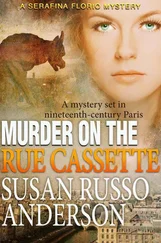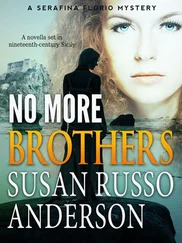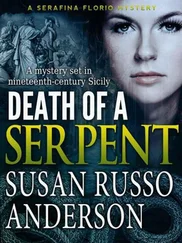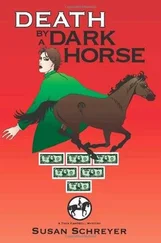Susan Anderson - Death Of A Sad Face
Здесь есть возможность читать онлайн «Susan Anderson - Death Of A Sad Face» весь текст электронной книги совершенно бесплатно (целиком полную версию без сокращений). В некоторых случаях можно слушать аудио, скачать через торрент в формате fb2 и присутствует краткое содержание. Год выпуска: 2014, Жанр: Исторический детектив, на английском языке. Описание произведения, (предисловие) а так же отзывы посетителей доступны на портале библиотеки ЛибКат.
- Название:Death Of A Sad Face
- Автор:
- Жанр:
- Год:2014
- ISBN:нет данных
- Рейтинг книги:5 / 5. Голосов: 1
-
Избранное:Добавить в избранное
- Отзывы:
-
Ваша оценка:
- 100
- 1
- 2
- 3
- 4
- 5
Death Of A Sad Face: краткое содержание, описание и аннотация
Предлагаем к чтению аннотацию, описание, краткое содержание или предисловие (зависит от того, что написал сам автор книги «Death Of A Sad Face»). Если вы не нашли необходимую информацию о книге — напишите в комментариях, мы постараемся отыскать её.
Death Of A Sad Face — читать онлайн бесплатно полную книгу (весь текст) целиком
Ниже представлен текст книги, разбитый по страницам. Система сохранения места последней прочитанной страницы, позволяет с удобством читать онлайн бесплатно книгу «Death Of A Sad Face», без необходимости каждый раз заново искать на чём Вы остановились. Поставьте закладку, и сможете в любой момент перейти на страницу, на которой закончили чтение.
Интервал:
Закладка:
“How do you know all of this?”
“I didn’t run a brothel for nothing. Oh, yes, I made a good living. Tessa’s secure-what am I saying-Tessa’s great-grandchildren will have untold wealth. But more important, I know everything about everyone. How do you think I survive?”
The maid returned with a silver tray piled with cups, saucers, and a large cake. “From cook: orange cassata with ricotta filling.” She began serving.
Serafina’s corset pinched just thinking about more food. “A tiny wedge for me, but cream in the latté.”
“Saving your appetites for tonight?”
Loffredo was visiting relatives in the south, and Serafina must admit, she missed him terribly. “He’s away. But I know something you don’t.”
“Such as?”
“The Lanza butler was an orphan.”
“So? What does that have to do with anything?”
“If we’re going to find the killer, we must dig into the victim’s past. Who were his enemies? More important, who were his friends?”
“Nonsense. At the heart of murder is lucre, mind me.”
“Often that’s true. But sometimes it’s love, a love gone feral.”
The madam stared at Serafina. “You’ve gone round the twist. And don’t explain, I don’t want to know.”
“So much for your detecting skills.” Serafina dug into her reticule and brought out her notebook, opened it to the coiling thread she’d found in the baroness’s villa, and placed it on the desk.
Rosa examined it, pulled at it, watched it stretch. She shoved a large piece of cake into her mouth and said through the morsel, “What am I thinking?” She rang the bell again.
When the maid appeared, she said, “Get the laundress.”
Serafina sipped her latté. “Why would a baroness risk such behavior with a servant? We all know that husbands can keep a mistress or two, but let a wife of any class so much as look at another man and she risks the end of her marriage, the loss of children, position, social ostracism. Why are you looking at me like that?”
They were interrupted by a knock, and the laundress, a squat woman with a red face, waddled into the room.
Rosa showed her the thread.
“Not from my laundry room, I tell you.”
“Of course not. But from where? Who would wear such a fabric?”
The laundress worried the snaky remnant between two fingers, shuffled over to a window. Serafina and Rosa followed her. In the morning light, it took on a fiery glow.
“Perhaps a clown’s costume?” Serafina asked.
The laundress hunched her loaf-like shoulders and shook her head. “The raveling from one who prances on a stage or flies through the air.”
When the laundress closed the door and the two of them returned to the desk, Rosa handed back the thread and notebook. “Take it with you tonight. Pinch the gown from a dancing bear and compare threads.”
When Serafina made no reply, Rosa said, “Don’t tell me you’ve forgotten about the circus.”
“Don’t be silly. The children look forward to it. And my family needs to laugh together.” She told Rosa about the tiff she’d overheard late yesterday between Maria and Teo, but the madam gave her a blank look. Serafina knew Rosa had an eye for the main chance, yet did not fully comprehend the altercations, the conspiracies, the intrigues that were daily occurrences in a large family.
“Speaking of forgetting,” Serafina said, “we haven’t finished with the baroness. I said she’d be ostracized for the behavior you allege.”
Rosa held her nose aloft and trumpeted, “You’re forgetting one small detail: her family is the one with the money.”
Serafina gazed at a point in the room.
“There goes your mind off that cliff again.”
“Just chewing on your words. And if the baron found her out, what would he do?”
“It depends,” the madam said. “But consider: if he has all the trappings of wealth and title, the ability to come and go whenever and with whomever he pleases, why would he risk a scandal? Lawyers would become involved, that’s a given, and when they do, all parties lose.”
Serafina had to agree with that. “In addition, he drinks.”
“Well, there you have it.”
“But could the baron have killed Cecco or arranged for his death?”
A Sprung Sofa
Serafina sat on a sprung sofa, waiting for Guardian Angel’s mother superior. The nun was a lifelong friend of Serafina’s dead mother and someone who’d helped Serafina in the past. Soon a wizened figure in black sailed into the room, veil flowing.
After dispensing with the usual exchange of news, Serafina asked Mother Concetta about the Lanza butler.
“Cecco? An orphan loved by all,” she said.
“No enemies?”
Concetta narrowed her eyes. “I mourn his death. Not unexpected.”
“How so?”
“A man so perfect unwittingly makes enemies.”
“Can you be more specific?”
The nun fingered her beads for a while. “When a boy becomes a man, we no longer suit his needs. But Cecco was a difficult case.”
“How so?”
“He wasn’t interested in tilling the fields or in carpentry or smithing. Whatever we tried, we couldn’t find an occupation for him. Oh, he was strong and tall, quick to learn, but none of our usual friends wanted to take him on. Too handsome, I suspect.”
There was something the nun was withholding. Serafina could feel it in the way the woman looked down at her hands. “That’s all you have to tell me?”
She straightened her wimple. “He had a wanderer’s heart.”
“And?”
“Just like your mother’s, your tongue persists.”
Serafina smile was wistful. “Who were his friends?”
“Cecco was a friend to all and had a special gift for knowing what others needed. He bound all wounds, quelled disturbances, dispelled intrigues. The other children flocked to him.”
“Then why couldn’t Cecco work here as a helping hand, a counselor, as Carmela did?”
The nun appeared not to have heard the question. She continued down her own track. “Perhaps ‘happy’ is the wrong word. Show me an orphan, and I’ll show you a sad face.”
Mother Concetta stopped talking. She seemed to be smoothing the rough edges of a memory. Soon she squirmed, withdrew a linen from her pocket, and wiped her brow. “You won’t give up, will you?”
Serafina made no reply.
“There was a boy. So lithe were his limbs; he’d run and tumble, an acrobatic magician. He idolized Cecco. For weeks, they’d be inseparable. Then the younger boy would ignore Cecco, and a heavy silence ruled the orphanage.”
“Can you be more specific?”
The nun glanced at the crucifix listing on the wall. “In the end, we had to separate them. We sent Cecco away. That’s all I’ll say.”
“Sent him where?”
“Barco’s circus.
“Why not the acrobat friend of his?”
“Cecco was older, you see, so he had to leave. And when he departed, the younger boy was relieved at first, and the house breathed again. His elation, however, soon turned to despondency. We feared for his soul.”
Serafina saw deep shadows flicker across Mother Concetta’s face.
After a long moment, the nun continued. “One of my many great sins-I did nothing to assuage the boy’s sorrow. I knew I should have gotten guidance from someone wiser in these things than myself, but I waited for time to heal the boy.”
Serafina considered Concetta’s response for a moment. “And was he healed?”
Mother Concetta shook her head. “One day he disappeared.”
“His name?”
“Roberto.”
Field Full Of Wagons
Early Thursday morning, October 29, 1868
“Try running away again and I’ll kill you. Understand?”
Читать дальшеИнтервал:
Закладка:
Похожие книги на «Death Of A Sad Face»
Представляем Вашему вниманию похожие книги на «Death Of A Sad Face» списком для выбора. Мы отобрали схожую по названию и смыслу литературу в надежде предоставить читателям больше вариантов отыскать новые, интересные, ещё непрочитанные произведения.
Обсуждение, отзывы о книге «Death Of A Sad Face» и просто собственные мнения читателей. Оставьте ваши комментарии, напишите, что Вы думаете о произведении, его смысле или главных героях. Укажите что конкретно понравилось, а что нет, и почему Вы так считаете.












